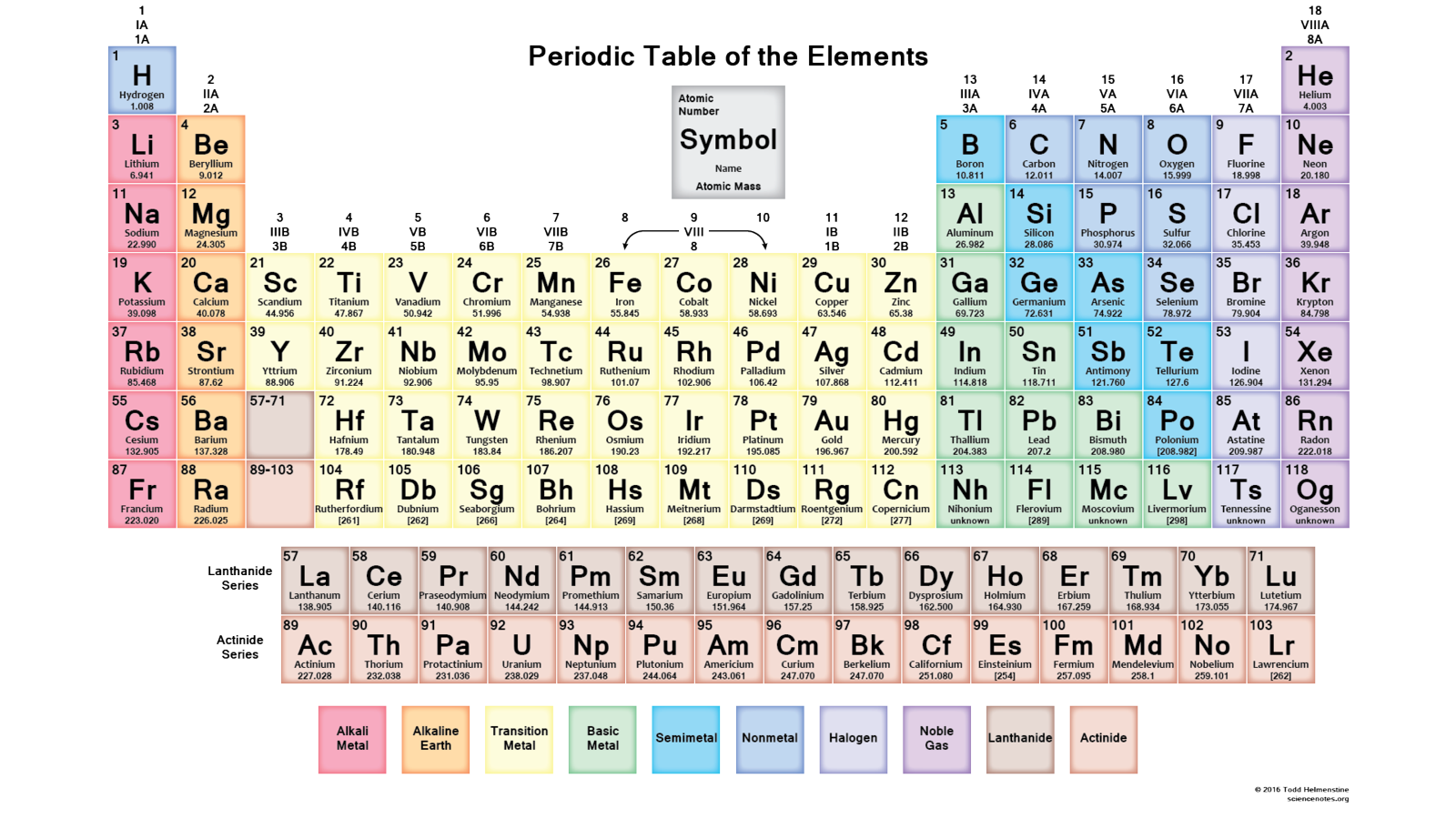
Chemicals are the building blocks of everyday life, but we at the National Association of Chemical Distributors know that elements are the building blocks of chemicals. We owe quite a lot to the creation of the Periodic Table of Elements, which is why we’re taking time today, on National Periodic Table Day, to thank Dmitry Mendeleev and Henry Moseley, as well as their predecessors Alexandre-Emile Béguyer de Chancourtois, John Newlands and Julius Lothar Meyer for creating a tool chemists around the world depend on.
The Periodic Table of Elements aids in the prediction of how certain elements will react together, making it a vital part of creating chemicals. Without the Periodic Table, essential chemicals we use every day may have never been created. We may not be able to clean our windows with Windex® (NH3) or relieve a headache with Tylenol® (C8H9NO2).
In fact, many of the personal care products we use every day might not exist without the Periodic Table. We may not be able to clean our teeth effectively without the calcium carbonate (CaCO3) in toothpastes, or treat acne without the salicylic acid (C7H6O3) in skincare products. We might be more susceptible to illness without the ethyl alcohol (C2H6O) in hand sanitizers.
The same is true for the  chemistries used in technology. We might not have smart phones, which often have lithium-ion batteries, without the lithium cobalt oxide (LiCoO2) that makes up the positive side of those batteries. Without undergoing a potassium nitrate (KNO3) bath, the touch screens that make them so easy to use would be much less durable.
chemistries used in technology. We might not have smart phones, which often have lithium-ion batteries, without the lithium cobalt oxide (LiCoO2) that makes up the positive side of those batteries. Without undergoing a potassium nitrate (KNO3) bath, the touch screens that make them so easy to use would be much less durable.
It’s hard to imagine life today had Mendeleev not created the Periodic Table as we know it in 1869. We need the Periodic Table because we need chemicals – which is why we rely on chemical distributors to ensure these materials safely get to the industrial customers who use them to produce paints, textiles, cleaning supplies, pharmaceuticals, paper and much more. Chemical distribution is not only essential to getting people the products they depend on every day, but it also employs more than 70,000 people and generates $5.14 billion in tax revenue for local communities across the country. Chemical distributors deliver tens of thousands of products to more than 750,000 customers in nearly every industry sector, meaning that many products you use every day were likely touched by a chemical distributor at some point in its production.
So today, on National Periodic Table Day, take a moment to thank Dmitry Mendeleev and others for their contribution to chemistry. And thank the field of chemical distribution for building on their contributions and making life in the 21st century possible.